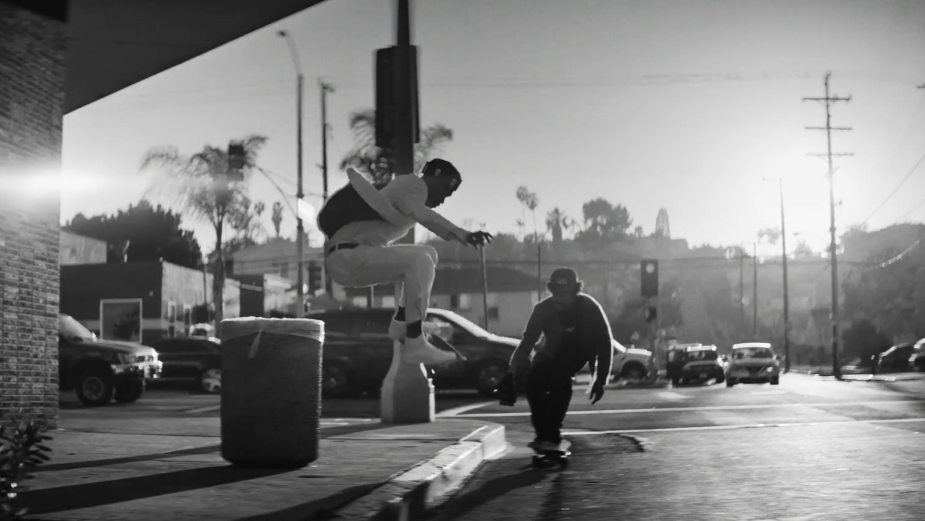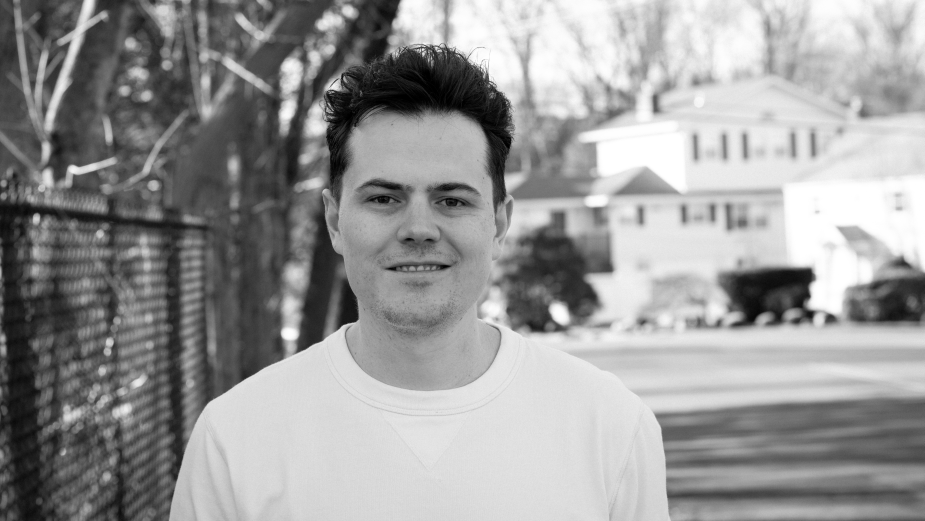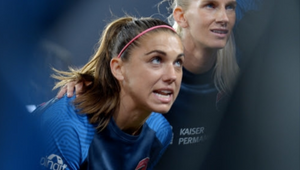
Finely Sliced: Tyler Horton

Editor Tyler Horton joined Uppercut in 2017. Originally from Scottsdale, AZ, Horton’s love of film was sparked at an early age, inspired by an appetite for watching sports reels and highlight videos. He went on to study film editing before hitting the road to tour with his band for four years.
His background in music informs his cutting style, which is rhythmic, energetic, and poetic. Notable recent work includes projects with Google, Nike, Volvo and Hypebeast.
LBB> The first cut is the deepest: how do you like to start an editing project?
Tyler> Organisation is the name of the game. My first step is to make sure everything I need is in my project and where it should be. Once dailies are loaded and broken down, I’ll watch everything down and start selecting. I always select pretty liberally because you never know what you’re going to need! Project timing permitting, I like to take the night and picture how I’m going to put everything together. Usually, I’ll have cut the piece in my head before I even sit down to start the edit. I’ve found this helps me hit the ground running and gets some of the initial issues I might run into out of the way.
LBB> Non-editors often think of editing just in technical terms but it’s integral to the emotion and mood of a film. How did you develop that side of your craft?
Tyler> I think you really hit your flow as an editor once you don’t even think about the technical side of things. That should be second nature, like a second set of hands. Once you have that it really opens up the creative side. When I was coming up in the business as a runner and assistant I tried to soak up as much of the technical side as I could, and I think that really prepared me for the next step.

Tyler Horton
LBB> How important is an understanding of story and the mechanics of story?
Tyler> It’s especially important when working on commercials. More often than not we’re tasked with fitting a 60-second story into a 30-second wrapper, which is actually one of the things I enjoy about this business. Every job is a new puzzle, and it really tests your creative ability. You have to look at a script or a batch of dailies and ask yourself, what are the most critically important pieces of story here? What could potentially be shortened or removed without doing a disservice to the piece? It’s always a very delicate balance.
LBB> Rhythm and a sense of musicality seem to be intrinsic to good editing (even when it’s a film without actual music) – how do you think about the rhythm side of editing, how do you feel out the beats of a scene or a spot? And do you like to cut to music?
Tyler> I kind of got my start in editing through music. I was in a band in my 20s and handled most of the design and music video work, including some lyric videos. I draw from that background in every job I work on. To me, sound is the most important part of editing. I like to take cues from the music to influence edit points, but music tracks change so often during any given job that I’ve found myself relying less on the music and more on sound design. I love aggressive, hyper-realistic sound design that you can feel in your bones when it hits, and I use it very often as a rhythmic element. That way, when the music track inevitably changes a day before picture lock, I don’t lose a lot of the feel I’ve created.
LBB> Tell us about a recent editing project that involved some interesting creative challenges.
Tyler> I recently cut a piece for Google with division7 director Joshua Kissi highlighting Black-owned businesses and skate culture in LA. The central theme was about movement, and I really wanted that feeling of the journey to come across throughout the film. By using quick textural transitions, aggressive sound design, and mixing in some high-speed shots for moments of breath, I think we were able to accomplish that feeling. We had an awesome team that really pulled it all together beautifully and the whole process was super collaborative. I’m definitely missing in-person creative sessions though!
LBB> In the US we know that editors are much more heavily involved across the post production process than in Europe - what’s your favourite part of that side of the job?
Tyler> I love being involved in a job from start to finish. It helps me really take ownership of every aspect of it. From the production, to the edit, mix, and grade, all the way through finishing. It’s always been important for me to be someone that agencies and directors can lean on and trust to make sure the final product is delivered properly.
LBB> What’s harder to cut around – too much material or not enough? (And why?)
Tyler> 100%, not enough. When I’m editing I love having options and being able to try different things to see what works and what doesn’t. When I’m stretching footage the possibilities become far more limited. If I have too much material, a lot of the “what if’s” don’t exist at the end of a job because I know I’ve already put the piece through the wringer!
LBB> Which commercial projects are you proudest of and why?
Tyler> I’m obsessed with the NFL and have been since I was a kid. When I was growing up I was mesmerised by highlight reels from the Sunday slate of games, and I remember a very specific instance where I said “I want to be the person who makes these.” I didn’t really know what that meant at the time, but last year I got the chance to cut a campaign for the NFL app with 72andSunny. The spots turned out great, and it was pretty awesome to watch football on Sundays and see the spots on commercial breaks. It really felt like a full-circle moment, and I’m grateful for the opportunity.
LBB> There are so many different platforms for film content now, and even in advertising something can last anything from a few seconds to a couple of hours. As an editor, are you seeing a change in the kind of projects you’re getting from brands and agencies?
Tyler> Viewer’s attention spans are tricky these days. We binge a full season of a TV show in a day without a second thought but a two-hour film is too much of a commitment. That being said, more and more advertising dollars are being spent on social platforms, so the work reflects that. Short, punchy, super clear messaging is becoming increasingly important. It’s always a nice challenge to tell a story in six seconds with a small amount of screen real estate!
LBB> Who are your editing heroes and why? What films or spots epitomise good editing for you?
Tyler> Lee Smith has a long history of cutting some beautiful films, but I was especially drawn to his killer work on 1917. Obviously, this appeared to be a “one-take” film, but he stitched the many hidden cuts together brilliantly. It really was a mind-blowing film that’s stuck with me.
When it comes to true editing heroes though, I’d have to say that there are the many talented editors who have served as mentors to me over my career. I learned a lot from them and I continue to apply the things they taught me in my work daily. Mentorship is critical for any young editor coming up, so that’s something I definitely want to pay forward.













